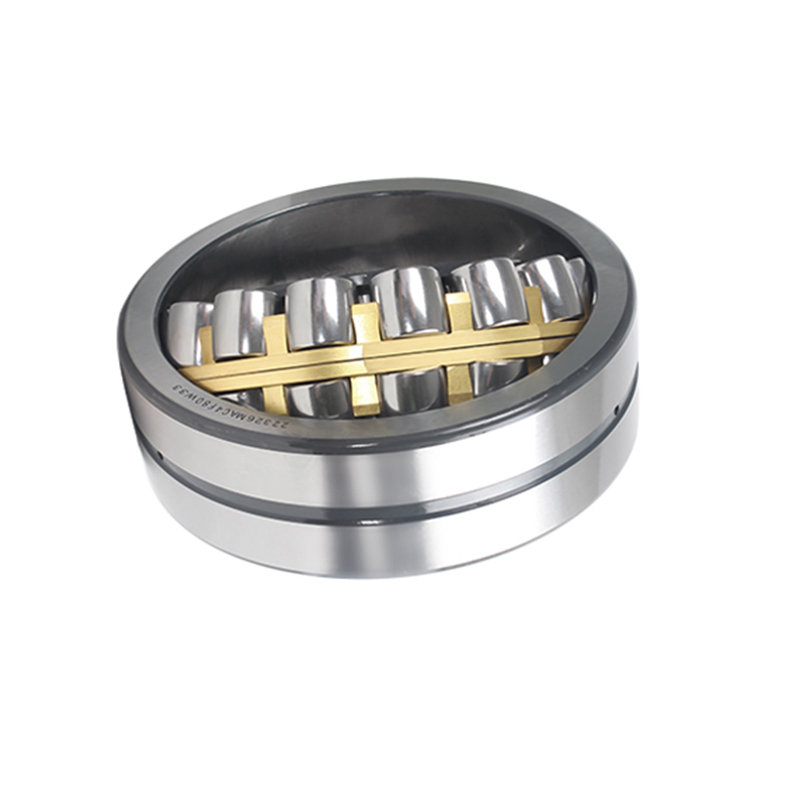Dec . 16, 2024 07:27 Back to list
spherical roller bearing material manufacturer
Understanding Spherical Roller Bearing Materials and Manufacturers
Spherical roller bearings are vital components in various machinery and applications, known for their ability to accommodate high radial and axial loads while offering excellent alignment capabilities. The performance and longevity of these bearings significantly depend on the materials used in their construction. This article explores the different materials utilized in manufacturing spherical roller bearings and highlights some of the leading manufacturers in the industry.
Materials Used in Spherical Roller Bearings
1. Steel Alloys
The most common material for spherical roller bearings is high-quality steel, particularly carbon steel or alloy steel. The alloying elements, such as chromium, molybdenum, and manganese, impart specific properties that enhance the bearing's strength, wear resistance, and fatigue life. The most commonly used steel grades include AISI 52100, which is known for its hardness and durability. The manufacturing process often includes heat treatment, such as quenching and tempering, to further increase hardness and performance under various load conditions.
2. Ceramics
In high-performance applications, where extreme conditions such as high speeds, temperatures, or corrosive environments are present, ceramic materials may be used for bearing elements. Ceramic balls, typically made from materials like silicon nitride, demonstrate advantages such as lower weight, higher stiffness, and excellent corrosion resistance. This makes them suitable for specialized applications in aerospace and high-speed machinery. Combined ceramic-steel bearings offer a balance of performance and durability.
3. Composite Materials
Recently, composite materials have emerged as alternatives to traditional bearing materials, especially in applications where light weight and high strength are crucial. These materials often combine polymers with reinforcing fillers to create a product that can withstand certain operational characteristics while minimizing weight. Composite spherical roller bearings can be found in applications such as automotive systems and industrial machinery, where they provide benefits like reduced friction and lower noise levels.
4. Special Coatings
Manufacturers are increasingly utilizing advanced coatings to enhance the performance of spherical roller bearings. These coatings, which can include nickel, chrome, or ceramic layers, offer superior resistance to wear and corrosion, extending the lifespan of bearings, especially in hostile environments. The incorporation of coatings can also reduce friction, contributing to improved efficiency and reduced energy consumption.
Leading Manufacturers of Spherical Roller Bearings
Several manufacturers around the world are recognized for their commitment to quality and innovation in producing spherical roller bearings.
spherical roller bearing material manufacturer

1. SKF
Based in Sweden, SKF is one of the leading manufacturers of bearings globally. With a focus on technological advancement and sustainable solutions, SKF produces a wide range of spherical roller bearings designed for various industries, including automotive, aerospace, and manufacturing.
2. NSK
NSK Ltd, a Japanese manufacturer, is renowned for its precision engineering and commitment to high performance. Their spherical roller bearings are widely used in heavy machinery, offering durable solutions that withstand high loads and adverse conditions.
3. FAG
FAG, a brand of the Schaeffler Group, is a well-established manufacturer with a long history in the bearing industry. They provide a comprehensive line of spherical roller bearings engineered to meet the demands of various applications, ensuring reliability and efficiency.
4. Timken
An American company, Timken is known for its innovative bearing solutions, including spherical roller bearings. Their expertise in advanced materials and manufacturing processes positions them as a key player in automotive and industrial applications.
5. JTEKT
JTEKT Corporation, the parent company of Koyo bearings, serves a global market with high-quality spherical roller bearings. Their focus on research and development ensures that they continue to offer cutting-edge solutions to meet evolving customer needs.
Conclusion
The selection of appropriate materials is crucial in the manufacture of spherical roller bearings, influencing their performance and lifespan. As industries become more demanding, manufacturers are innovating with materials and methods to enhance the durability and functionality of their products. By understanding the material options and knowing the leading manufacturers, engineers and procurement specialists can better select the right spherical roller bearings for their specific applications, ensuring optimal performance and reliability.
Latest news
-
25MM 2 BOLT UCFLX05-14 Flange bearing unit( oval)
NewsMar.07,2025
-
4 bolt UCF 200 series Pillow block bearings
NewsMar.07,2025
-
25MM 2 BOLT UCFLX05-14 Flange bearing unit( oval)
NewsMar.07,2025
-
UCF216-50 4-Bolt Flange Housing Square Bearing
NewsMar.07,2025
-
25MM 2 BOLT UCFLX05-14 Flange bearing unit( oval)
NewsMar.07,2025
-
spherical roller bearing material exporter
NewsMar.07,2025





